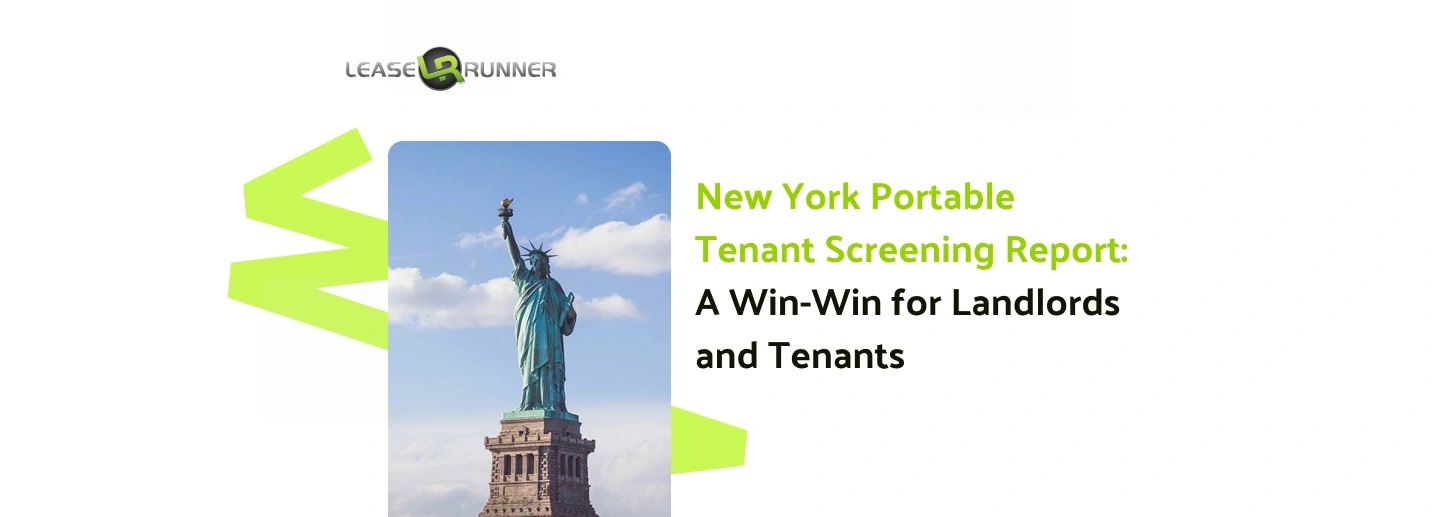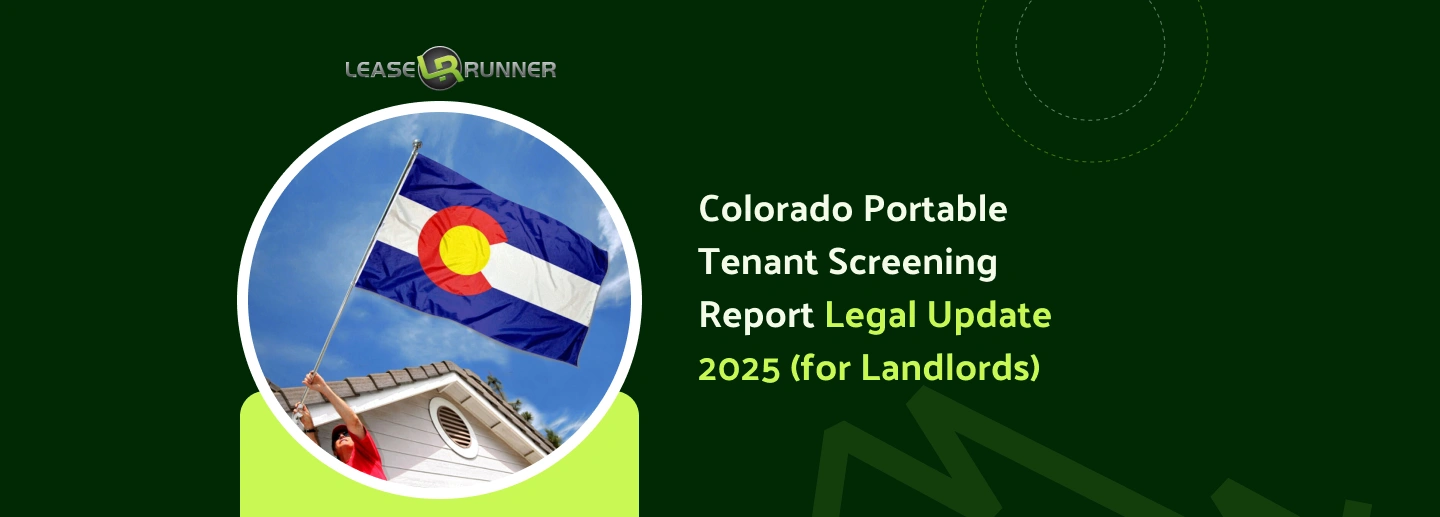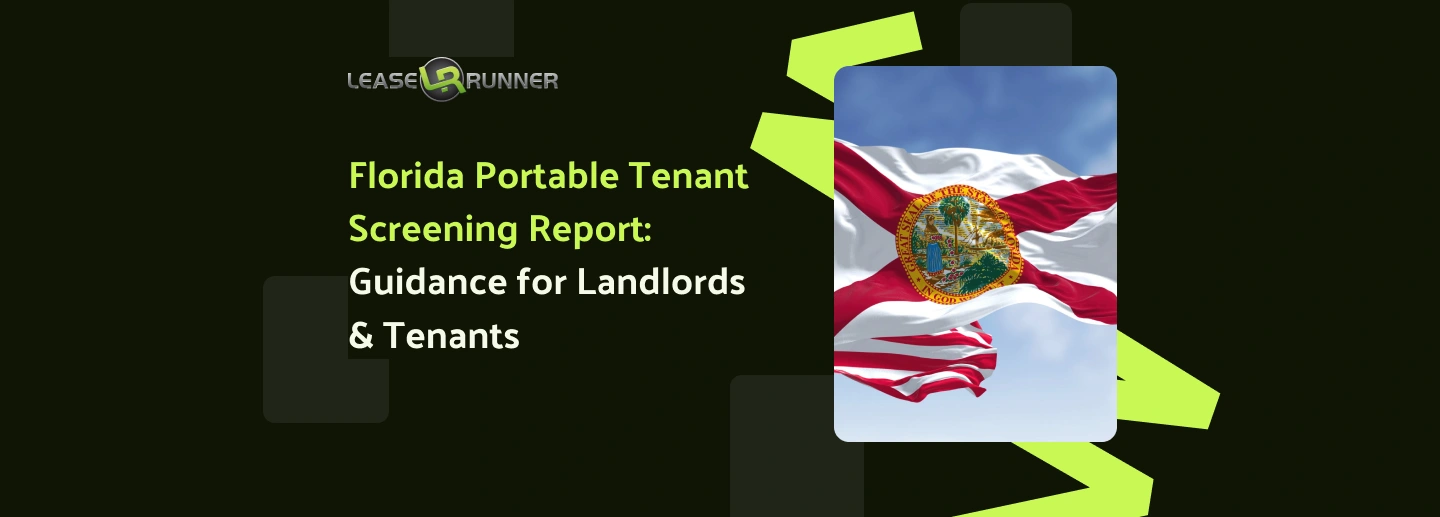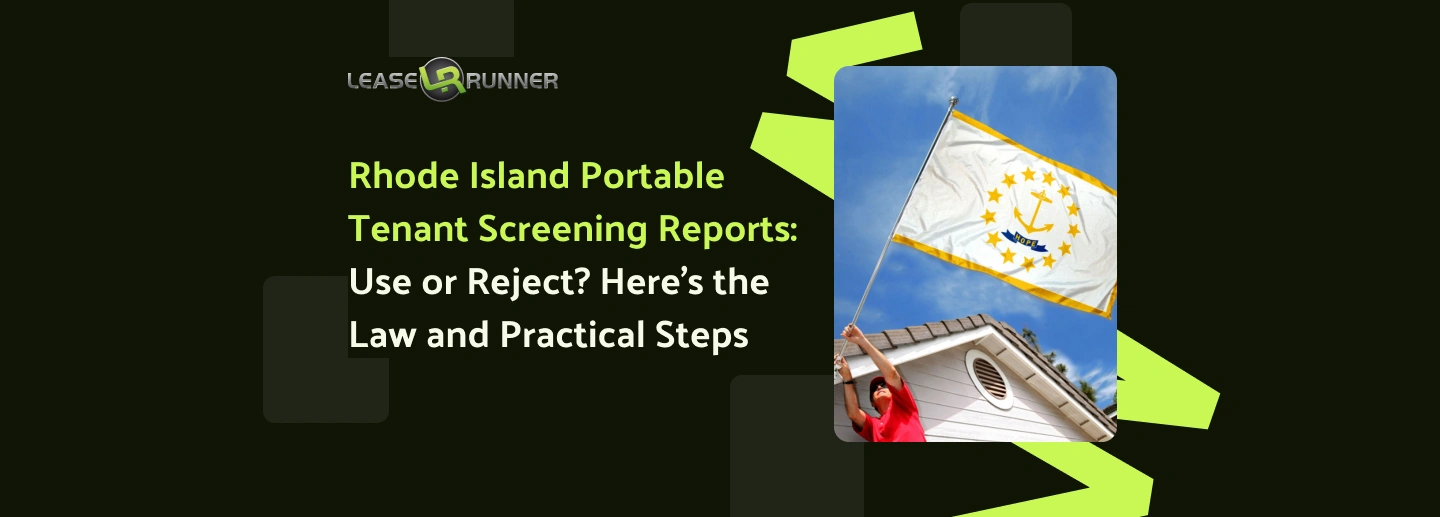Navigating New York’s rental market can be repetitive and costly for both landlords and tenants. While states like Colorado allow tenants to use a portable tenant screening report for multiple applications, landlords in New York aren’t required to accept a New York portable tenant screening report.
However, under the Housing Stability and Tenant Protection Act of 2019, tenants who provide their own background check and credit report cannot be charged an application fee, creating a fairer, more cost-effective process.
So, how does a tenant background check in New York work, and what should landlords and tenants keep in mind? Let’s dive into the details in this guide.
What is a Portable Tenant Screening Report (PTSR) in New York?

A portable tenant screening report (PTSR) is a reusable report that applicants can share with multiple landlords within a specified period, typically 30 days. Instead of paying separate application fees for each rental, a renter pays once and reuses the same screening results. This approach leads to comprehensive reusable tenant screening reports that cover financial history, credit score, and rental background.
For example, with a New York portable tenant screening report, a tenant applying to multiple apartments in Brooklyn can avoid paying repetitive nyc application fees while ensuring each landlord receives consistent, FCRA-compliant information.
Why Portable Tenant Screening Reports are a Win-Win for Landlords and Tenants

Portable tenant screening reports benefit both landlords and tenants by simplifying the application process, reducing costs, and increasing transparency.
Benefits for Landlords
For landlords, a New York portable tenant screening report offers several advantages:
- Reduced Administrative Burden: Landlords no longer need to request multiple background checks for each applicant. The New York portable tenant screening report comes directly from the tenant, saving time and reducing repetitive work.
- Faster Decisions: With a ready-to-use report, landlords can quickly review an applicant's information, including financial history and credit check results, allowing them to make swift decisions in a competitive rental market. Learn more about screening Section 8 tenants efficiently.
- Consistent Information: When the report is generated by a reputable, FCRA-compliant screening service, landlords can trust the accuracy and consistency of the data, reducing the risk of errors or incomplete information. This also helps lower screening costs by avoiding duplicate checks.
Benefits for Tenants
A New York portable tenant screening report offers several advantages for tenants navigating the rental market:
- Cost Savings: Tenants can avoid paying the average rental application fee for each property. In New York, this fee is capped at $20 under state law, making a New York portable tenant screening report a budget-friendly choice.
- Streamlined Application Process: The ability to reuse the same New York portable tenant screening report across multiple rental applications speeds up the application process and reduces stress, giving tenants an edge in competitive markets. This tenant advantage in competitive markets ensures they can respond quickly without submitting new reports repeatedly.
- Empowerment and Control: Tenants maintain full control over their own data, reviewing the New York portable tenant screening report before sharing it with a landlord. With soft credit inquiry tenant screening, tenants can protect their credit score while ensuring accuracy, and correct any mistakes before it impacts rental decisions.
What Information Shows Up on a Tenant Screening Report in New York?
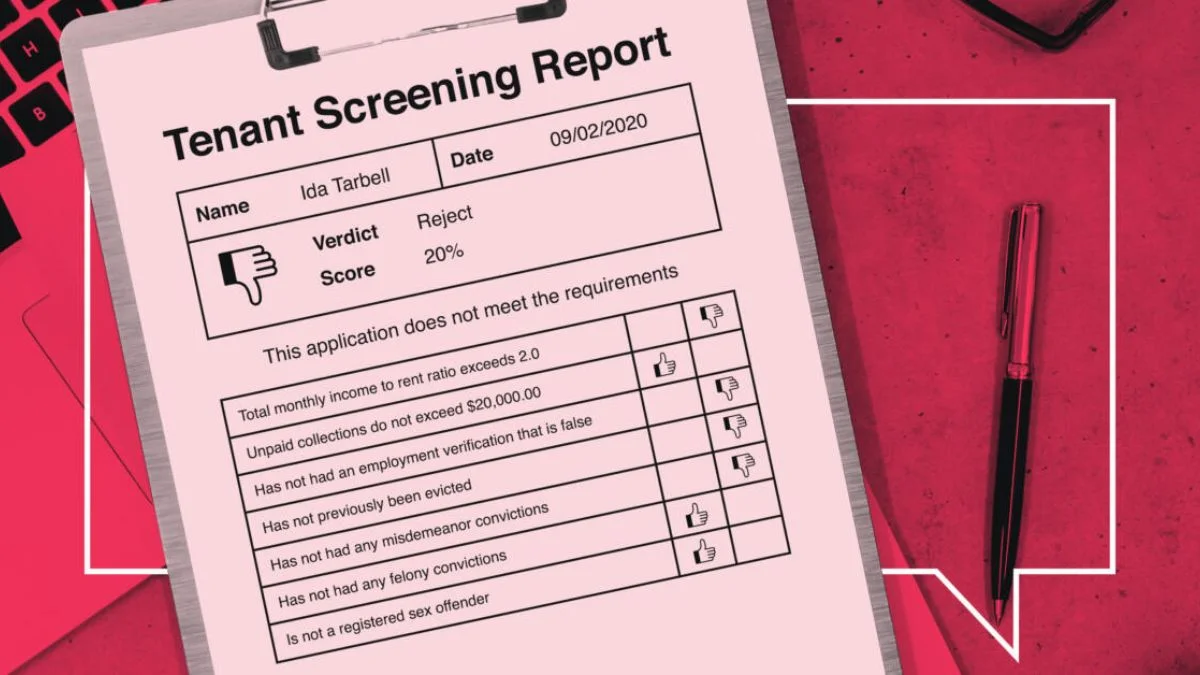
A tenant screening report New York City landlords receive typically includes:
1. Cash Flow Reports
This section highlights the applicant’s overall financial health from a major bureau like Experian, Equifax, or TransUnion. It summarizes credit balances, monthly obligations, and available cash flow, helping landlords assess whether rent payments can be made consistently.
2. Criminal Background Check
Background checks in New York are subject to strict legal limits. Under federal law, the Fair Credit Reporting Act (FCRA) establishes the general framework for how tenant reports can be used. However, the specific rules differ significantly between New York State and New York City.
- In New York State (excluding New York City): Landlords are permitted to review information about an applicant's past convictions, including both felonies and misdemeanors. This process must comply with the regulations set forth by the FCRA.
- Within New York City: The Fair Chance for Housing Act (effective 2023) significantly limits the use of criminal history. Landlords may only consider whether an applicant appears on the sex offender registry or has pending criminal charges for certain serious offenses. Criminal convictions outside of these categories generally cannot be used to deny housing.
These rules aim to prevent unfair housing denials and ensure applicants are evaluated based on their current qualifications rather than past convictions.
3. Eviction History
Landlords can see whether an applicant has prior eviction filings or judgments. In New York’s competitive market, this detail helps identify potential risks while ensuring decisions remain compliant with NY tenant screening laws.
4. Rental History
The rental history section provides a detailed overview of a tenant’s prior rental experiences, helping landlords assess reliability and behavior. It typically includes:
- Previous rental addresses – A record of where the tenant has lived before.
- Length of tenancy – How long the tenant stayed at each property.
- Payment behavior – Information on timely payments, late payments, or any missed rent.
- Lease compliance – Notes on any lease violations or adherence to rental agreements.
For more guidance on managing rental agreements and updates, see our articles on renewing a lease agreement and lease addendums.
5. Income and Employment Verification
Income and employment verification helps landlords confirm a tenant’s financial stability and ability to pay rent. Applicants usually provide documents such as pay stubs, tax returns, or employer references. This process ensures the reported income matches their capacity to meet rental obligations.
In New York City, however, there are additional rules to consider. Landlords cannot discriminate against tenants based on a lawful source of income, such as housing vouchers (e.g., Section 8), disability benefits, or public assistance. While a common guideline in NYC is that tenants should earn 40 times the monthly rent, landlords cannot reject an applicant solely because their legal income source does not meet this multiple (NYC Human Rights Law).
If you want to understand more about common screening standards, check out our article on the 3 times the rent rule. For landlords who need a more reliable way to assess tenant finances, our income verification and cash flow report offers a clear picture of affordability and payment capacity.
6. Consent and Fee Notice Compliance
Reports include proof that the tenant gave written consent for the screening. They also confirm compliance with New York’s $20 rental application fee cap, which landlords cannot exceed.
7. Additional Legal and Regulatory Details
Depending on the provider, reports may also contain compliance notices, Fair Credit Reporting Act (FCRA) disclosures, and state-specific rules. This helps landlords avoid legal mistakes while keeping the process transparent for tenants.
How to Get a Portable Tenant Screening Report in New York

Use Reputable Screening Platforms
Tenants should start with trusted services such as LeaseRunner or TransUnion SmartMove. With LeaseRunner, landlords gain access to a comprehensive tenant screening report that brings together every critical check in one place—covering eviction history, rental history, credit background, and income verification.
This full-service approach not only saves time but also reduces the risk of overlooking key red flags. By using LeaseRunner, landlords can make informed decisions with confidence, knowing they have a complete picture of the applicant’s background before approving a lease.
Tenant Initiates the Report
The process is simple: the prospective tenant first creates an account and then provides the necessary personal and financial information. From there, the platform generates a comprehensive New York portable tenant screening report on their behalf.
Most tenant screening platforms charge a one-time fee ranging from $30 to $50 per applicant, depending on the level of detail in the report. Basic checks like credit or background may be on the lower end, while full-service reports that include eviction history, income verification, and rental history fall toward the higher end.
At LeaseRunner, the standard fee is $45 per applicant, giving both landlords and tenants an affordable option for a reusable, full-service report that can be shared with multiple property managers. This ensures landlords get reliable information while tenants avoid paying for multiple screenings.
Tenant Shares the Report
Once the tenant receives their New York portable tenant screening report, they have full control over how to share it with prospective landlords. Unlike traditional background checks or credit reports, which often require each landlord to order their own copy, the New York portable tenant screening report is designed to be flexible and shareable.
Tenants can share directly with multiple landlords using a secure link or access code, ensuring that their sensitive information is protected while still being easily accessible to authorized parties. Here’s a step-by-step guide for tenants to maximize the benefits of their PTSR:
- Request Your PTSR
- Review Your Report
- Generate a Shareable Link or Access Code
- Share Directly with Landlords
- Track Access and Updates
Landlord Verifies Authenticity
Landlords can verify the authenticity of a tenant’s PTSR directly through the screening platform. Unlike traditional reports, which can sometimes be harder to confirm, PTSR provides secure, traceable verification. Here’s how landlords can ensure the report is genuine and make the verification process more effective:
- Use the Secure Link or Access Code – Landlords should only access the PTSR through the tenant-provided secure link or unique access code. This prevents fraudulent or tampered reports.
- Check Report Status – Many platforms indicate whether the report has been issued, accessed, or updated. Landlords can confirm they are viewing the most current version.
- Verify Tenant Identity – Compare the tenant’s personal information on the PTSR (name, date of birth, address history) with the information provided in the rental application.
- Review Report Timestamp – Look for the issue date or timestamp on the report to ensure it is recent and relevant.
- Confirm Platform Authentication – Ensure the verification is done on the official screening platform, using HTTPS and proper login credentials, rather than a third-party or emailed copy.
- Cross-check Key Sections – Pay attention to rental history, eviction records, and credit scores. Inconsistencies between the PTSR and the tenant’s application can prompt follow-up questions.
- Track Access Activity – Some platforms allow landlords to see if the tenant has shared the report with others, adding an extra layer of transparency.
By following these steps, landlords can quickly and reliably verify the authenticity of a tenant’s PTSR while minimizing the risk of fraud, making the rental application process faster and more secure.
Compliance with New York Laws
Reports must meet local standards for accuracy, data protection, and fee restrictions. A New York portable tenant screening report helps landlords and tenants stay compliant by:
- Protects Personal Data – Use secure platforms that encrypt sensitive tenant information and limit access to authorized parties only.
- Provides Transparent Fees – Any costs associated with the New York portable tenant screening report should be clear and reasonable, in line with local regulations.
- Maintains Accuracy – Verify that the report reflects the most current and correct rental, credit, and background information.
- Allows Tenant Control – Tenants should have the ability to review and share their report directly with landlords, ensuring informed consent and transparency.
- Supports Documentation – Keep a record of reports shared and accessed for future reference or potential disputes.
Legal Considerations for Landlords and Tenants in New York
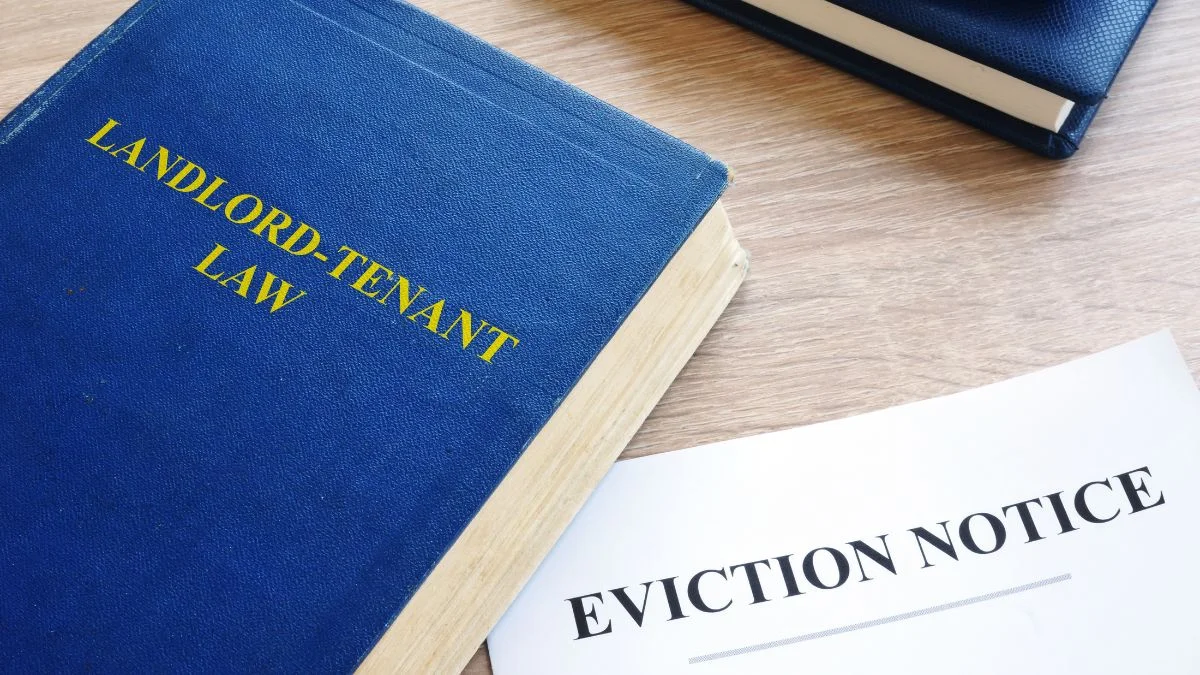
Tenant screening in New York is closely regulated. Both landlords and renters should understand their rights and obligations under state and city law before using or accepting a New York portable tenant screening report.
New York Tenant Screening Laws
Under New York Real Property Law § 238, landlords are limited in what they can charge for background and credit checks. They must comply with the Fair Credit Reporting Act (FCRA), when using third-party screening services, which require written tenant consent and proper disclosure. In New York City, the Fair Chance for Housing Act (Local Law 24, effective 2025) restricts when criminal background checks can be considered. Landlords must also follow rules on breaking a lease in New York when screening applicants who may challenge lease terms, and ensure screening practices align with New York rent laws regarding tenant fees and obligations.
Landlords Rights to Accept PTSR in New York
Landlords are not required to accept a portable tenant screening report in all cases, but they must respect the fee cap and waiver provisions under § 238. This means:
- If a tenant provides a recent report (≤30 days), the landlord cannot charge an additional screening fee.
- If a landlord insists on running their own report, the total fee still cannot exceed $20.
- Landlords remain free to make rental decisions based on legitimate business criteria, provided they do not violate Fair Housing or local anti-discrimination laws.
Tenant Privacy Protection
Tenant privacy is a key consideration in New York. Screening reports contain sensitive personal information such as Social Security numbers, employment records, and financial history. Landlords must handle this data securely and use it only for rental decisions. Under both state law and the FCRA:
- Tenants must provide written consent before a report is pulled.
- Applicants have the right to receive a copy of their report upon request.
- If a landlord denies an application based on the report, they must issue an adverse action notice explaining the reason and the tenant’s right to dispute inaccuracies.
In New York City, Local Law 24 further protects applicants by limiting the use of criminal records and ensuring transparency in the screening process.
Portable Tenant Screening Report by State: A Comparative Overview

While New York has its own specific regulations, other states have also adopted laws concerning portable reports. This comparative overview shows the growing trend of tenant-initiated screenings.
- Colorado: Colorado’s HB23-1099 requires landlords to accept a valid PTSR that meets the statute (prepared by a CRA within the previous 30 days and made directly available by the agency). Landlords cannot charge an extra screening fee if a compliant PTSR is provided.
- Washington: Under RCW 59.18.257, landlords must disclose in writing whether they will accept a comprehensive reusable tenant screening report. If they do accept one, they may not charge the applicant for any additional landlord-ordered screening report.
- California: Under AB 2559, landlords in California must accept valid portable tenant screening reports that are less than 30 days old and complete, without the option to refuse unless a written explanation is provided.
- Rhode Island: Rhode Island allows tenant-provided reports (e.g., credit or official state criminal background checks) up to 90 days old and limits fees to actual cost—no extra application fee for documents the applicant provides.
- Maryland and others: Maryland law defines a reusable tenant screening report as one prepared within the previous 30 days and made directly available to landlords at no charge. The law sets standards for content and use but does not require landlords to accept PTSRs.
This comparison shows that while each state has unique rules, the New York portable tenant screening report stands out for its clear fee cap and privacy protections.
In short, New York offers clear rules and protections, making compliance easier. For landlords across multiple states, using a service like LeaseRunner ensures consistent, reliable, FCRA-compliant reports.
Tips to Avoid Portable Tenant Screening Fraud
Fraudulent New York portable tenant screening report can create problems for both landlords and renters. Whether you are running a tenant background screening or reviewing a portable tenant screening report, it’s important to stay vigilant. Here are some best practices to protect yourself:
1. Use Trusted Screening Services
Both landlords and tenants should only use reputable, FCRA-compliant platforms. These services protect sensitive data and ensure the accuracy of the reports. For a reliable and seamless experience, consider using a trusted service like LeaseRunner, which provides comprehensive reports that are FCRA-compliant and easy to share.
2. Verify the Applicant’s Identity
Before moving forward, confirm the applicant’s identity with valid government-issued documents. This step helps prevent impersonation and fraudulent submissions. You can also strengthen your screening by asking the right questions during the application stage. For example, see these guides on rental application questions and questions to ask a previous landlord. These can help you spot inconsistencies early.
3. Be Wary of Incomplete Reports
Legitimate tenant screening reports should include credit, background, and rental history. Be cautious of any reports missing critical sections, as this may indicate fraud. Checking details like eviction history or reviewing HUD criminal background check requirements can provide additional assurance. If you are renting to subsidized housing applicants, make sure you understand how to screen Section 8 tenants correctly.
4. Review the Tenant’s Rental History
Cross-check addresses, references, and lease history. Following a tenant screening checklist helps landlords ensure no important details are missed.
5. Confirm the Accuracy of Credit and Criminal Checks
A good practice for a landlord is to cross-reference information provided on the report with other records if they are concerned about accuracy.
Conclusion
The New York portable tenant screening report is changing the way landlords and tenants handle applications. By lowering costs, reducing duplicate checks, and staying compliant with NY tenant screening laws, it creates a fairer rental process. Landlords gain reliable data, while tenants save both money and time.
FAQs
1. Where Can I Get a New York portable tenant screening report?
You can request one through trusted online platforms like LeaseRunner and share it with landlords.
2. How Long Is a Portable Tenant Screening Report Valid?
Most New York portable tenant screening report are valid for a limited time, typically around 30 days. It is important to check the specific validity period with the provider of the report.
3. Can a Tenant Refuse Viewings in New York City?
While a landlord has the right to show the apartment, tenants in New York City are entitled to "reasonable notice" before a showing. They can't refuse viewings outright, but they have the right to privacy and can request viewings be scheduled at a time that works for them.
